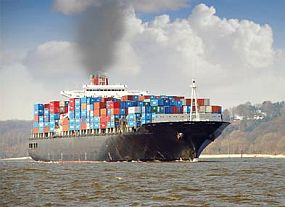Analytics, Baltic States – CIS, Ecology, Energy, EU – Baltic States, Forum, Legislation, Transport
International Internet Magazine. Baltic States news & analytics
Sunday, 11.05.2025, 12:57
EU Strategy for the Baltic Sea Region: essential cooperation
 Print version
Print version |
|---|
The Commissioner’s speech titled “Environmental Partnership remains core issue of Baltic Sea Strategy” stressed that environmental challenges did not recognise man-made borders: climate change, pollution, and natural disasters all require joined efforts at local, regional and national level, as well as with the European international partners.
Important thing to remember, said the Commissioner, that nature does not need mankind, but mankind cannot advance without nature. Therefore, good environmental management is central to modern economic development.
Relatively young initiative
The marine environment of the fragile Baltic Sea is key to the prosperity and well-being of all our people. That is why it is at the heart of the European Strategy for the Baltic Sea Region. And these issues are the core of co-operation between the EU and Russia in this region, through HELCOM and the Northern Dimension Environmental Partnership.
The EU Baltic Sea Strategy is a relatively young initiative providing a new form of co-operation between the countries of the region. It allows particularly the EU member states around the sea basin to plan strategically together and maximise the impact they can achieve with the public and private funds available.
“As the Baltic Sea states develop and refine the ways of working together, argued the Commissioner, it is clear that the dominant focus must remain on the common interest in saving the sea. Without this, the two other chief concerns in the Baltic Sea strategy, i.e. connecting the region and building prosperity, make little sense.
Reference: SPEECH/13/283; 5 April 2013.
There are already some important progresses through the EU Baltic Strategy: the adjacent states have stimulated commitments to phase out the phosphates in detergents that contribute to eutrophication. The states have mobilised farmers to adopt better practice to avoid pollution of the sea. And the states have launched pilot investments in nutrient removal in four key municipal wastewater treatment plants.
However, to be successful, the EU and the member states need additional stimuli to work together, with full support of all the stakeholders involved in areas that have an impact on the environmental condition of the sea.
EU cooperation with Russia
Cooperation with Russia is of paramount importance and the EU is looking forward to strengthening cooperative efforts including those made through the Baltic Sea Region programme, in which Russia will soon become a full partner.
The EU-Russia cooperation has intensified in recent years as Russia has moved to modernise its environmental policies. The personal commitment of Prime Minister Medvedev and President Putin has been key in prioritising work in this field – with 2013 named a Year of Environmental Protection in Russia. The EU particularly welcomes the programme for environmental protection till 2020 adopted in 2012.
The EU-Russia cooperation is an essential partnership as it is driven by common interests and objectives; however the outcomes of cooperation will be judged by results. The Russian side has shown a clear determination and political commitment to ensure the protection of the region.
The common will to succeed must be translated into actions and the next HELCOM ministerial meeting later in 2013 will review progress and decide on the next steps to be taken.
At the same time, the next annual forum of the EU Strategy for the Baltic Sea Region which will be held in Vilnius (11-12 November 2013) will make an analysis of the ways taken by the member states.
All states around the Baltic Sea believe in co-operating across borders to find pragmatic solutions to the challenges the region is facing. The Baltic Sea cooperation has already achieved a lot; but the states have to stay ambitious, and ensure that the pass a better place to live and work for the next generations.
General reference: http://europa.eu/rapid/press-release_SPEECH-13-283_en.htm?locale=en








 «The Baltic Course» Is Sold and Stays in Business!
«The Baltic Course» Is Sold and Stays in Business!

